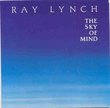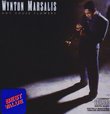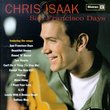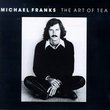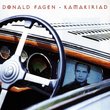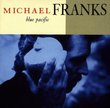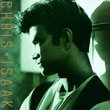| All Artists: Johann Sebastian Bach, Wanda Landowska Title: The Well-Tempered Clavier, Book I Members Wishing: 0 Total Copies: 0 Label: RCA Release Date: 10/25/1990 Genre: Classical Styles: Forms & Genres, Improvisation, Historical Periods, Baroque (c.1600-1750), Modern, 20th, & 21st Century Number of Discs: 2 SwapaCD Credits: 2 UPC: 078635621723 |
Search - Johann Sebastian Bach, Wanda Landowska :: The Well-Tempered Clavier, Book I
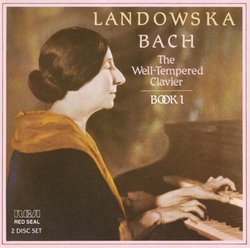 | Johann Sebastian Bach, Wanda Landowska The Well-Tempered Clavier, Book I Genre: Classical
|
Larger Image |
CD DetailsSimilarly Requested CDs
|
CD ReviewsLandowska's Bach John Austin | Kangaroo Ground, Australia | 08/09/2000 (5 out of 5 stars) "Although she had championed the playing of Bach's keyboard works on the harpsichord for most of her life, Wanda Landowska was not invited to record his "48" until she was 70 years old. The first third of Book One was recorded in New York in 1949. "If I am to complete this, my last will and testament," Landowska then said, "the recording equipment and team will need to be brought to my home in Connecticut." Her request was granted, and the project was ultimately concluded there in 1954. The result is a listening experience that no lover of Bach's works would want to be without. Here are thoughtful, vivid, grave and sparkling performances that command attention and live long in the memory. Some might argue that Landowska's specially-made Pleyel harpsichord is as far removed from Bach's keyboard instrument as is the modern pianoforte, and that her "grand manner" playing is outmoded today, but a few minutes listening should be enough to disarm all criticism. Listen to the grandeur of the eighth fugue and the bright sonorities heard in the second prelude, and you will have been introduced to the special magic that the combination of Bach and Landowska produced. Those familiar with the works will hear that Landowska alters the note values of the theme in the first fugue. In the accompanying essays which she supplies herself, she justifies the alteration, claiming her examination of the earliest manuscript revealed that additions were made later in a fresher ink. I wonder if forensic evidence has shown her to be right." The Recording of the 48. G. Lawrence | 05/01/2007 (5 out of 5 stars) "My comments apply to both Books I and II: It's hard to put into words really, what it is about Wanda Landowska. If one steps away from "modern" musical conventions for a moment and really honestly listens to what Madame Landowska has to say, it can be an experience which is eye-opening to say the least. Landowska, as I have said before in my review of her Scarlatti recordings, was not concerned with "authentic interpretation", really what she strove toward was a musical realization which would bring the listener close to the spirit of Bach's music. That being said, a word about the Pleyel and Landowska's ideal sound is crucial to understanding Landowska's reading of the 48. The Pleyel Harpsichord was built with the express purpose of catching the Harpsichord up to its rival the Concert Grand Piano. Its many registers, far from being superfluous, highlight fugal composition and add heighten the drama of certain musical phrases. Its sound is unique; therefore it is not accurate to compare it to its ancestors. A lot of the Pleyel's sound characteristics are the way they are for two reasons, first the sound must posses enough volume and sustain that it can work in a large concert hall without amplification, and secondly it must record well. With these two aims in mind Landowska's sound is perfect for the task at hand. The other factor besides the instrument itself which must be considered, is the circumstances surrounding the recording itself. In 1949, the year in which recording started on the 48, Landowska had just turned 70. She had finally recovered from the shock of the war years and was now set on leaving behind a monument to her life's work. To this end she decided to record the complete Well-Tempered Clavier, recording sessions would continue into 1953. Recording began at RCA studios in New York, but at this point, being 70 years old and just having settled into her new house in Lakeville, CT; Landowska decided the constant travel was too much. As she put it "If I am to complete this, my last will and testament, the engineers and recording equipment will have to be brought to my home in Lakeville" RCA, in no place to argue with the still feisty Landowska, happily agreed. What was the point to that story you may ask? Well, it points out two very important things about the physical recording. The first is spiritual if you will; Landowska considered this the magnum opus of her career the summa of her 70 plus years of keyboard playing. Most importantly though, this was to be her last will and testament she was well aware that this endeavor would occupy the remainder of her life and so she was inspired by a sense of duty to set down an authoritative reading of the solo harpsichord masterpiece; One which she had studied all her life in order to tease out all its secrets. She did make recordings after 1953 but they were simply a way for her to stay active those last years. Dances of Poland, Mozart, Haydn, the Two and Three Part Inventions-( Left unfinished, these being her last recordings, she died of a stroke after completing only four of the twelve three-part inventions, that morning she was to finish the series.) None of these were a real serious study as her previous work had been. What one hears than is Wanda Landowska at the absolute pinnacle of her powers. Secondly, the sound of the recordings themselves: Landowska recorded Preludes& Fugues I-VIII of Book I in NYC. The rest of the set was recorded in her private music room in Lakeville (Her Library was the recording booth!). The first recording sound familiar to anyone acquainted with her work, as they are studio masters. The remainder- 9-24 Book I and all of Book II sound very "close" there is no spatial aspect to the sound. This is due to the room itself and the fact that these sessions were tapped as opposed to being recorded on shellac. This would seem to be a draw back, but a careful listening reveals that we are sitting right beside Landowska as her magnificent fingers, still very young and strong after 70 years, climb up and down the Pleyel's two manuals! We can hear, in this only recording, what Landowska's playing sounded like in her ears. Buy this recording, and truly listen. Hear what Wanda has to say, because more than any one playing today she has a message for her audience-"...if a man.. or a woman has nothing in their insides...in their soul, then they are poor. But if they have a conviction that something is beautiful...that something is profound...it helps them...to overcome their grief." " A whole 'nother harpsichord Fernand Raynaud | California, USA | 09/25/2007 (5 out of 5 stars) "So many fine review/comments have been left here, that I just wanted to add that the sheer power of the harpsichord is often overlooked, and that the personal force of Wanda Landowska, so visible in her hands, as projected by this instrument, is one of the great aspects of this recording. Bach was a strong man, not an effete plucker of trills, and yet somehow the piano did not appeal to him. Granted the early fortepiano was primitive, but still, given the dynamic sensitivity but weak volume of the clavichord, and the tinkling of the harpsichord, it seems he would have been drawn to the fortepiano. The reason for Bach's preferences is obvious when you hear Landowska: this is not a tinkling instrument, and many modern recordings are too delicate, not manly enough. The massive harpsichord she had made by Playel, and filled whole concert halls with, sounds much like a smaller instrument in a small room. The range of tonalities at her disposal is not atypical of a fine harpsichord of the baroque era. I can't forget my impression of playing a dual-manual harpsichord after playing a clavichord in the same setting, and thinking "what a MASSIVE sound!". In this sense there is nothing false about her instrument or her approach, and many a subsequent interpretation just sounds dry and wimpy. Her playing roars and sings, it is in turn delicate, tragic and gargantuan. It is indeed her last will. She shuns the excessive trills and ornamentations. It sounds like a pipe organ, a piano, a clavichord, with everything in between. What an avalanche of emotion and sound! Nobody since then has equaled her in range and power, and though I can appreciate many other interpretations, this is the one with cojones! A different take on Bach, and a must-have!"
|

 Track Listings (24) - Disc #1
Track Listings (24) - Disc #1